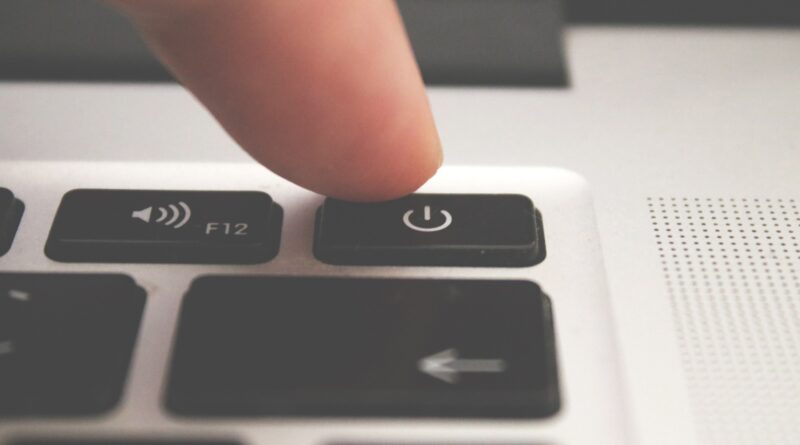Scialinių tinklų higiena.
Nors savęs izoliavimas nuo ligos (ir tų, kurie gali ją pernešti) yra gyvybiškai svarbus visuomenės sveikatai, yra mažiau aptariamas aspektas: atsiribojimas nuo socialinės žiniasklaidos informacijos apie virusą. Trys metrai fizinėje erdvėje yra pakankamas atstumas, tačiau jis netaikomas kibernetinei erdvei, kur virusinė dezinformacija plinta nekontroliuojamai.
Lygiai taip pat, kaip galite būti ligų pernešėjas, galite būti dezinformacijos ir baimės pernešėjas. Bet jūs galite tai sustabdyti atsiribodami. Jums nereikia kas valandą atnaujinti naujienų. Dauguma to, ką matote ir skaitote, jums nėra svarbu. Turėtumėte ne ignoruoti naudingą informaciją, o atskirti aktualias naujienas nuo nereikšmingų.
Gydytojai visame pasaulyje skelbė užrašus: „Mes dirbame dėl jūsų. Likite namuose dėl mūsų“. Tai buvo puikus patarimas, tad turėtume imtis tolesnių veksmų. Likdami namuose netapsime ligų platintojais, taip pat galime pasistengti netapti dezinformacijos platintojais. Žmonės yra socialūs, ir mes randame būdų užmegzti ryšį net tada, kai negalime to padaryti fiziškai. Ypač tarptautinės krizės metu buvo lengva pasipiktinti vienu ar kitu pandemijos aspektu. Kiekvienas turi savo nuomonę apie tai, kas yra (ar ne) daroma ir ką reikėtų (ar ne) daryti. Kiekvienas turi teisę į tokias nuomones, tačiau jie turėtų žinoti, kad tos nuomonės, išreikštos socialinėje žiniasklaidoje, turi pasekmių ir gali pakenkti kitiems, nors ir netyčia. Lygiai taip pat, kaip malonu fiziškai bendrauti su kitais žmonėmis (bet iš tikrųjų gali būti jiems pavojinga), malonu išsilieti socialiniuose tinkluose (tačiau gali būti pavojinga sekėjams).
Jūs nežinote, kas galų gale pamatys jūsų įrašus ir komentarus (tokia yra „virusinių“ įrašų prigimtis), ir nors jūs nepagalvojate, kiti gali būti labiau pažeidžiami. Kaip žmonės imasi veiksmų apsaugoti tuos, kurių imuninė sistema susilpnėjusi, turėtų būti protinga imtis panašių veiksmų, siekiant apsaugoti tuos, kurių psichologinė sveikata yra pažeista – tuos, kurie kenčia nuo nerimo, depresijos ir panašiai, kurie šiuo atveju yra ypač pažeidžiami. Yra daug būdų susisiekti su kitais ir dalytis rūpesčiais bei jausmais ir ne taip viešai – el. paštu, tiesioginiais pranešimais, vaizdo skambučiais ir net senais gerais laiškais. Kaip ir bet kas kitas, žmonės gali išreikšti savo jausmus ir rūpesčius išmatuotais būdais, kurie mažiau kenkia kitiems.
Visuomenė mėgsta kaltinti žiniasklaidą dėl dezinformacijos, ir dažnai pelnytai, tad mes ne taip norime pamatyti kaltininką veidrodyje. Daugelis žmonių, ypač socialinėje žiniasklaidoje, nepripažįsta, kad jie tapo klaidingų naujienų šaltiniais savo įrašais. Negalime kontroliuoti, ką naujienų organizacijos (ar kas nors kitas) skelbia internete. Tačiau mes galime – ir iš tikrųjų turime pareigą – padėti sustabdyti visų formų dezinformacijos plitimą. Jūs negalite pakeisti mirčių skaičiaus Kinijoje ar Italijoje. Negalite pakeisti medicininių kaukių gamybos ir pristatymo. Bet jūs galite padaryti ką nors su bloga informacija internete.
Socialinės žiniasklaidos higiena gali būti paprasta: abejotinos naujienos neperdavimas, patiktuko nepaspaudimas ar nesidalinimas prieš patikrinant faktus, ypač jei atrodo, kad ši istorija sukurta siekiant paskatinti socialinį pasipiktinimą. Netikėkite ar nesidalykite informacija socialiniuose tinkluose, susimąstykite, ar tai tiesa, ar tai iš patikimo šaltinio.? Tačiau to neužtenka, taip pat reikia užduoti šiuos klausimus: net jei tai gali būti tiesa, ar tai naudinga? Tai skatina vienybę ar susiskaldymą? Geriausias patarimas pandemijos įkarštyje ir dabar: būkite saugūs, praktikuokite socialinį ir kibernetinį atsiribojimą ir nusiplaukite rankas.
Hygiene of social networks.
While isolating yourself from the disease (and those who may carry it) is vital to public health, there is a less discussed aspect: distancing yourself from social media information about the virus. Three meters is a sufficient distance in physical space, but it does not apply to cyberspace, where viral disinformation spreads unchecked.
Just as you can be a carrier of a virus, you can be a carrier of misinformation and fear. But you can stop it by distancing yourself. You don’t need hourly updates. Most of what you see and read is not important to you. You should not ignore useful information about the coronavirus but separate the relevant news from the irrelevant.
Doctors all over the world showed up with signs that read: “We work for you. Stay home for us.” That was great advice, so we should take it further. Staying at home will prevent us from spreading disease, and we can also try not to spread misinformation. Humans are social, and we find ways to connect even when we can’t physically do so. Especially during an international crisis, it was easy to become outraged by one aspect or another of the pandemic. Everyone has their own opinion about what is (or isn’t) being done and what should (or shouldn’t) be done. Everyone is entitled to their opinions, but they should be aware that those opinions expressed on social media have consequences and can harm others, however unintentionally. Just as it’s nice to physically interact with other people (but can actually be dangerous for them), it’s nice to vent on social media (but can be dangerous for your followers).
You don’t know who will end up seeing your posts and comments (that’s the nature of “viral” posts), and even though you don’t think about it, others may be more vulnerable. Just as people take steps to protect those with compromised immune systems, it would be wise to take similar steps to protect those with compromised psychological health—those with anxiety, depression, and the like who are especially vulnerable. There are many ways to connect with others and share concerns and feelings in a less public way: email, instant messages, video calls, and even good old letters. Like anything else, people can express their feelings and concerns in measured ways that are less harmful to others.
The public likes to blame the media for misinformation, and often deservedly so, so we don’t want to see the culprit in the mirror. Many people, especially on social media, do not recognize that they have become sources of fake news through their posts. We cannot control what news organizations (or anyone else) put online. But we can – and indeed have a duty – to help stop the spread of all forms of misinformation. You cannot change the number of deaths in China or Italy. You cannot change the production and delivery of medical masks. But you can do something about bad information on the Internet.
Social media hygiene can be simple: not relaying, liking, or sharing questionable news before checking the facts, especially if the story appears to be designed to fuel social outrage. Do not believe or share information on social networks; think about whether it is true or from a reliable source. But this is not enough. The following questions must also be asked: Even if this were true, is it useful? Does it promote unity or division? The best advice in the midst of the pandemic and now: stay safe, practice social and cyber distancing, and wash your hands.
foto Aleksandar Cvetanović from Pixabay




